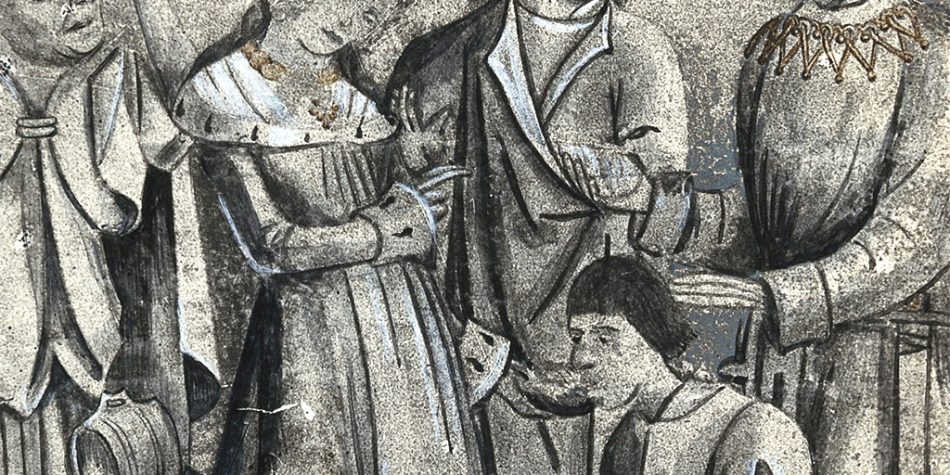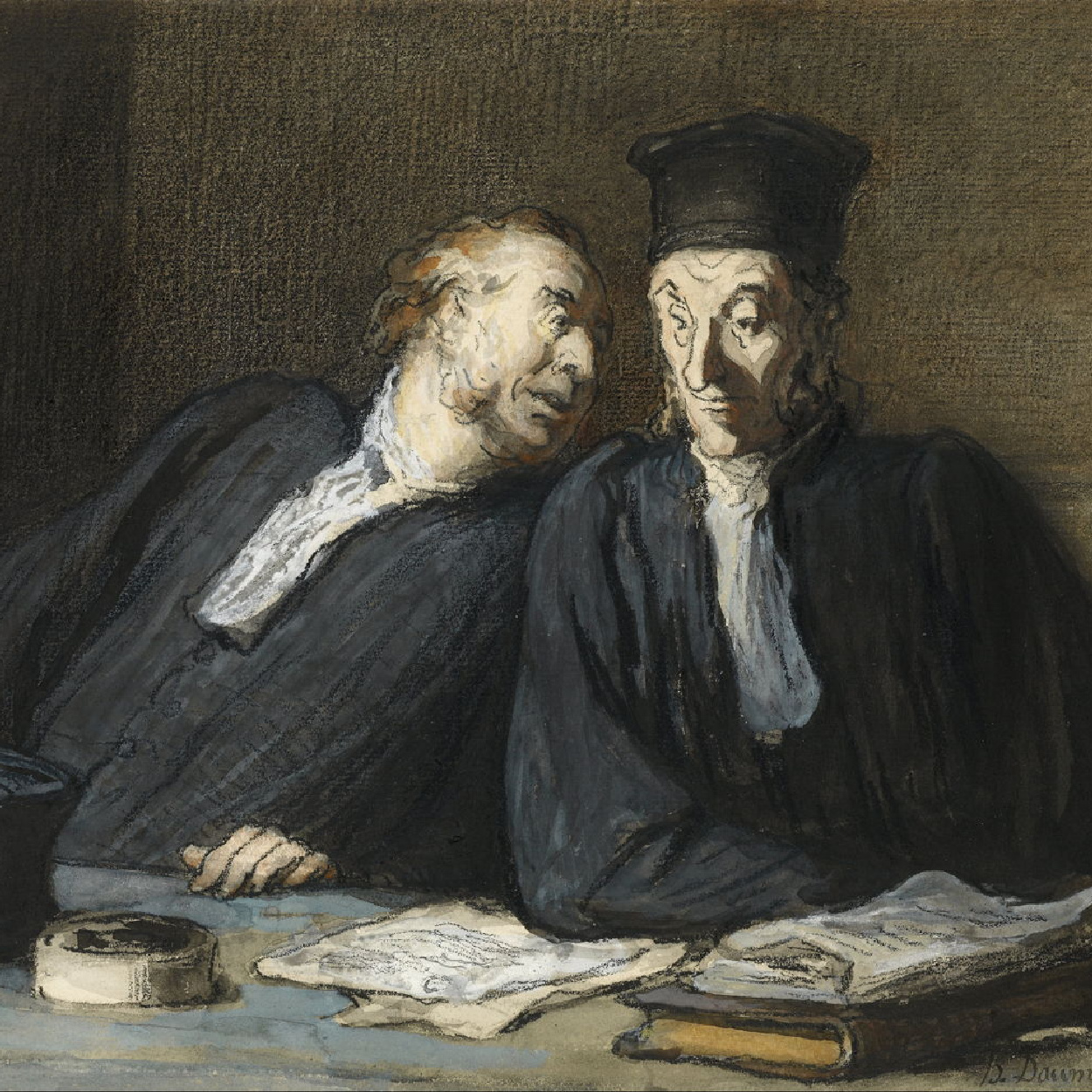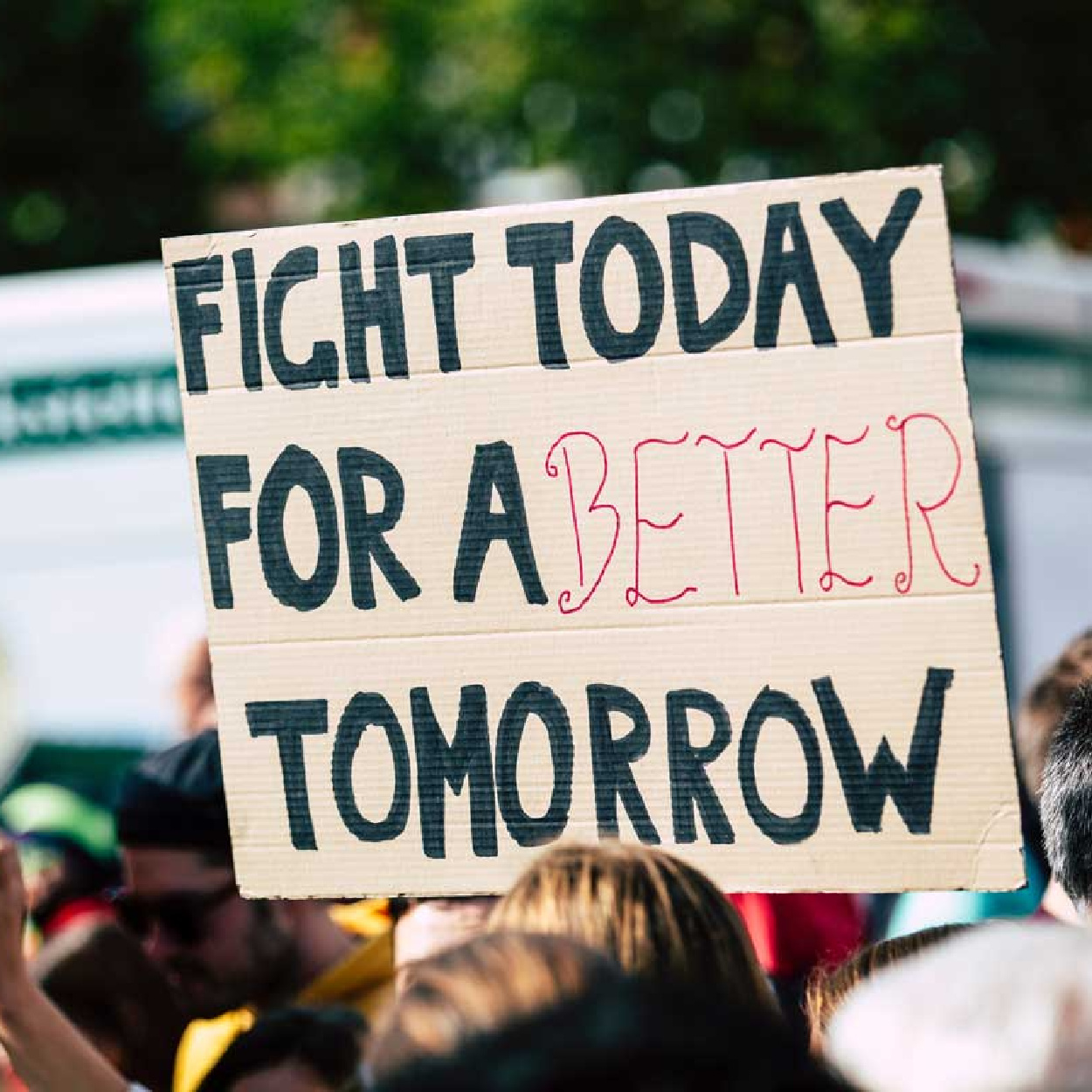For the better part of the last 15 years, I’ve mediated divorces. When my kids would ask me what I do, I’d tell them that I help people “stop fighting.” All outcomes are not ideal. People don’t typically leave my office hugging (I mostly mediate divorces after all). But sometimes, just sometimes, there’s a recognition of the “other” in the dispute—a moment when someone decides to listen and to try to understand the other’s perspective. Sometimes, there is even healing.
These moments are holy.
On the subject of divorce, a comedy skit from a few years ago humorously depicts a Republican “dad” and Democrat “mom” fighting over custody of their annoyed teenage daughter, the United States. In the current political environment, it really does feel like we’re caught in the middle of a custody battle; and it’s a nasty one, with candidates deriding each other in campaign ads, at rallies, and in debates. We see it in the utter unwillingness to compromise at the expense of, and with apparent disregard for, the well-being of the country. In my experience, these sorts of battles never end well for the kids.
I, like many of you, have grown weary of the hostility and division in our national politics. And I understand the skepticism many feel about ever getting beyond this too. The nastiness has seeped into other spheres of public and private discourse. I recently had a decidedly unfriendly political conversation with my own 80-year-old mother. I’m not proud of this. Let’s just say it was not the kind of “curious conversation” that I have previously espoused. For many of us, our political conversations seem to devolve into shouting matches—if we talk about our differences at all. I’m disturbed by the new trend I see on social media of people “unfriending” those with whom they disagree.
We have survived each of these trying times and even thrived in the aftermath. If we have done it before, we can do it again.
Our divisions are no more apparent than in the racial inequities and civil unrest plaguing our country. I was sickened along with many of my fellow citizens by the images of George Floyd gasping for breath. I mourn with the families of Jacob Blake, Breonna Taylor, and so many others. I applaud my fellow citizens’ First Amendment right to protest, and I have also been alarmed that some of these protests have given way to rioting and additional loss of life. The mediator in me wants to help people stop fighting.
Yet there are rays of hope.
As one commentator notes, “This is not the first time that the nation has been so divided that it shows signs of coming apart.” He points to several periods, including, 1968 with the abdication of LBJ and the assassinations of Martin Luther King and Robert F. Kennedy; 1832 when the Hoover administration failed to address an unemployment rate that had risen to 24 percent; and of course, 1860 when “the continued existence of slavery tore the nation apart.” The author goes on to discuss the 1800 election of Thomas Jefferson, which he says, “was as angry and mean-spirited as any in our history.”
As a nation, we have survived each of these trying times and even thrived in the aftermath. If we have done it before, we can do it again.
Looking outside of the US, South Africa’s handling of their own grim racial divisions provides a remarkable and hopeful example of healing. Apartheid was inarguably evil. The atrocities committed and the resulting reprisals affected thousands. While many called for trials and punishments, Nelson Mandela, upon his release from 27 years in prison, did not seek retribution, but said, “The need to unite the people of our country is as important a task now as it always has been.”
Upon winning the first democratic election, Mandela instituted the Truth and Reconciliation Commission predicated on the fundamental principle that “to forgive is not just to be altruistic, but is the best form of self-interest.” The TRC had several functions, one of which was to grant amnesty to individuals who fully confessed their crimes and met other requirements. Court-like processes were in place to ensure that the full truth was told, the victims of the crimes were invited to attend and give testimony, and the sessions were televised to the nation.
While the TRC has been criticized by some, Archbishop Desmond Tutu who chaired the TRC saw the effort as very successful. He said, “Human beings can leave you speechless, really. They can leave you speechless by the horrible things they do, but they also leave you speechless with the incredible things. We saw so many times people who ought to have been bristling with bitterness and anger, when they meet the perpetrator, actually being able to embrace.”
The TRC allowed victims to tell their stories, perpetrators to ask for forgiveness, and in many instances, for that forgiveness to be given. After a white officer in the defense forces confessed to his part in a terrible massacre, he turned to the packed hall, in which sat some of those who had been wounded or lost loved ones, and he asked for forgiveness. As Tutu remembers, “they did not rush to strangle or assault him. Unbelievably, they applauded.” A woman whose father, a member of the Cradock Four, had been killed in a gruesome manner said to a hushed city hall, “We would like to forgive; we just want to know whom to forgive.”
Through these and many other similar occurrences, Tutu recalled thinking: “let us keep silent, because we were in the presence of something special, of something holy. Many times I have felt we should take our shoes off because we were standing on holy ground.”
Ken Cloke, a mediator, writer, and presenter, has said that “conflict is overridingly spiritual, because every conflict presents us with a life choice, an opportunity for transformation, and an invitation to transcendence. In addition, each resolution is a kind of minor miracle, in which parties move from impasse to solutions, antagonism to collaboration, revenge to forgiveness, isolation to community. … When we are able to empathize with people we have feared or hated, we open hidden parts of ourselves.”
Fred Luskin of the Stanford University Forgiveness Project talks about this challenging, but rewarding life choice, explaining that “the human being is wired biologically and genetically for hostility, revenge, compassion, forgiveness, and love—all of it.” The question is, “Are you choosing the right response that is most skillful at the time.” Choosing love and forgiveness in the face of difficult conflict is far from easy, which is why it is all the more miraculous—and holy—when it happens.
In the recent General Conference of The Church of Jesus Christ of Latter-day Saints, several leaders called for unity, asking members to choose to put aside any racist behaviors and attitudes. Addressing the racial divisions in our country, Dallin H. Oaks quoted Reverend Theresa A. Dear of the NAACP saying, “racism thrives on hatred, oppression, collusion, passivity, indifference, and silence.” He continued, “As citizens and as members of The Church of Jesus Christ of Latter-day Saints, we must do better to help root out racism.” President Russell M. Nelson echoed these admonitions saying, “I grieve that our Black brothers and sisters the world over are enduring the pains of racism and prejudice. Today I call upon our members everywhere to lead out in abandoning attitudes and actions of prejudice.”
While there are times when we may be asked to extend forgiveness to someone who is unrepentant, it is far easier to forgive when our forgiveness is sincerely sought.
President Oaks also lamented the current “anger and hatred in political relationships and policies,” and quoted former President Gordon B. Hinckley, saying “Loving our enemies and our adversaries is not easy. Most of us have not reached that stage of … love and forgiveness. . . . It requires a self-discipline almost greater than we are capable of[,]… but it must be possible.” Tutu had similar sentiments, saying in a 1998 interview, “It’s never easy to forgive, it’s never easy to reconcile. It’s not cheap. It cost God the death of this Son.”
How can we take these difficult steps toward forgiveness and healing as a nation? It is important to note that leadership matters. In both the aftermath of Thomas Jefferson’s election and apartheid in South Africa, it was inspired leaders who eschewed divisive rhetoric and led by example. We have seen a paucity of this kind of leadership in recent years, and unfortunately, we don’t know if we will encounter any better after November 3rd. But, with or without such leadership it falls to each of us as individuals to examine our hearts.
We each can examine where we need to seek for or extend forgiveness. The seeking part cannot be underestimated. While there are times when we may be asked to extend forgiveness to someone who is unrepentant, it is far easier to forgive when our forgiveness is sincerely sought.
In these divisive times, each of us likely has something for which we could seek forgiveness. We can all look at our language, behaviors, and attitudes. Did that social media post contribute to the civil discourse of differences or to the opposite? Have I recently shouted at my family members or friends about politics (guilty)? Who have I judged harshly? And, importantly, have my silence and inaction served to further injustice or inequities in our society?
Forgiveness is also easier to extend when we have a better understanding of what it means. Azim Khamisa, an author and speaker on reconciliation, has said that “forgiveness is not very well understood in our culture.” There is a misconception that if forgiveness is granted, “the victim is saying what the perpetrator did is okay.” This is not the case. Likewise, Desmond Tutu said that “Forgiving is not forgetting; it’s actually remembering—remembering and not using your right to hit back. It’s a second chance for a new beginning. And the remembering part is particularly important. Especially if you don’t want to repeat what happened.”
Forgiveness does not mean condoning bad behavior, nor is it inconsistent with punishment where such is needed. Forgiveness also does not mean that we stop working for or requiring righteous change. It does mean that we let go of hatred, anger, and animosity so that we are free to move forward without hostility or bitterness. It does mean that we can see those who have hurt us, or whom we have feared or hated, as human beings and fellow citizens. This life choice is possible.
A recent example gives another ray of hope for this kind of healing that we so desperately need. Just two days after the shooting of her son, while he was still fighting for his life, Julia Jackson, the mother of Jacob Blake, gave some public remarks. After saying that her son would not be happy with the damage that was happening to his community, she continued:
As I have prayed for my son’s healing, physically, emotionally, and spiritually, I also have been praying, even before this, for the healing of our country. . . . We are the United States. Have we been united? Do you understand what’s going to happen when we fall? Because a house that is against each other cannot stand. To all of the police officers, I’m praying for you and your families. To all of the citizens, my Black and brown sisters and brothers, I’m praying for you. I believe that you are an intelligent being just like the rest of us. Everybody, let’s use our hearts, our love, and our intelligence to work together to show the rest of the world how humans are supposed to treat each other. America is great when we behave greatly.
This moment is holy.
Carolynn Clark recently took over as director of the Master of Legal Studies program at the S.J. Quinney College of Law at the University of Utah where she teaches Conflict and Legal Crisis Management. She also still mediates when she can.
















